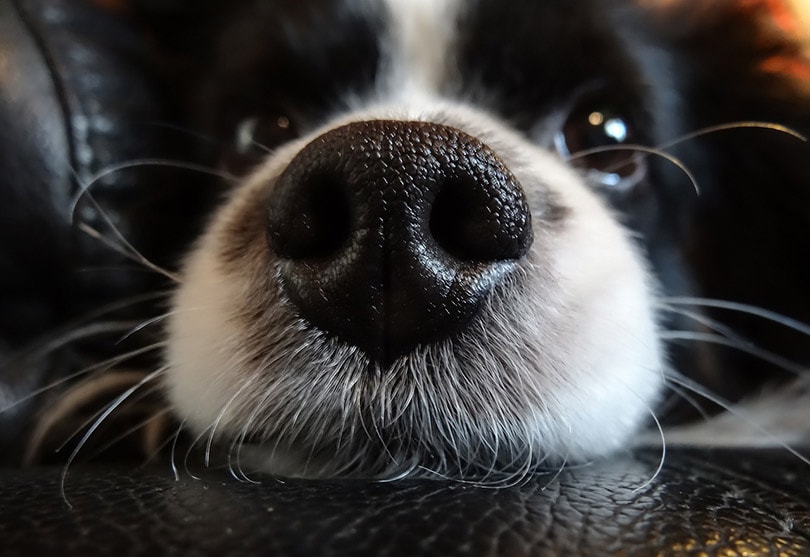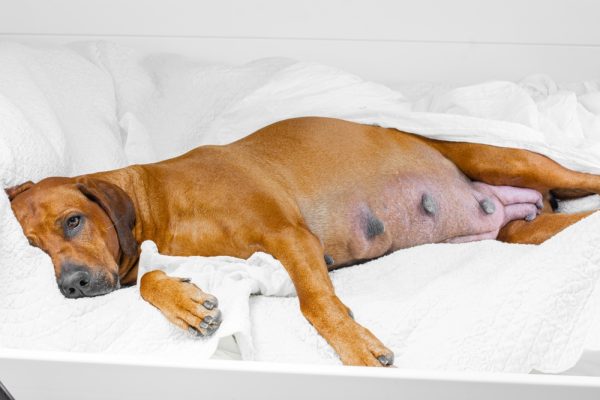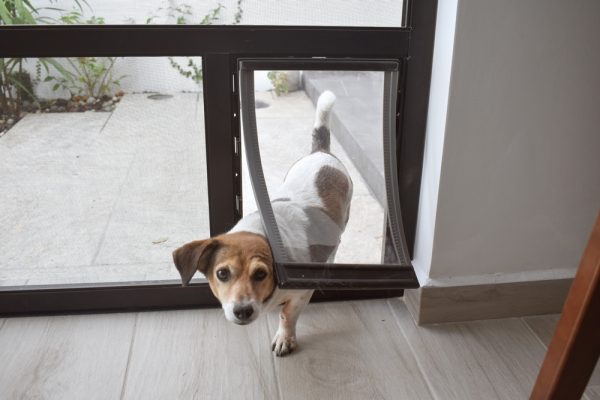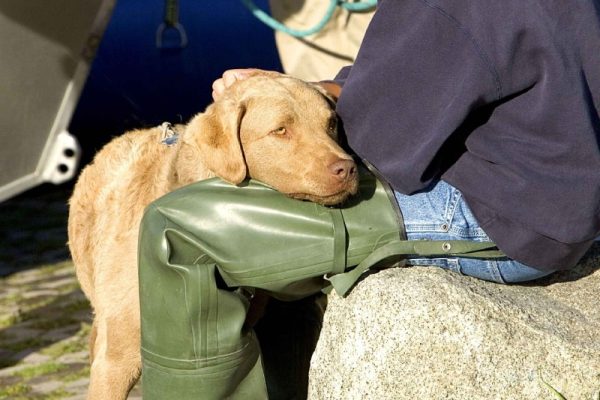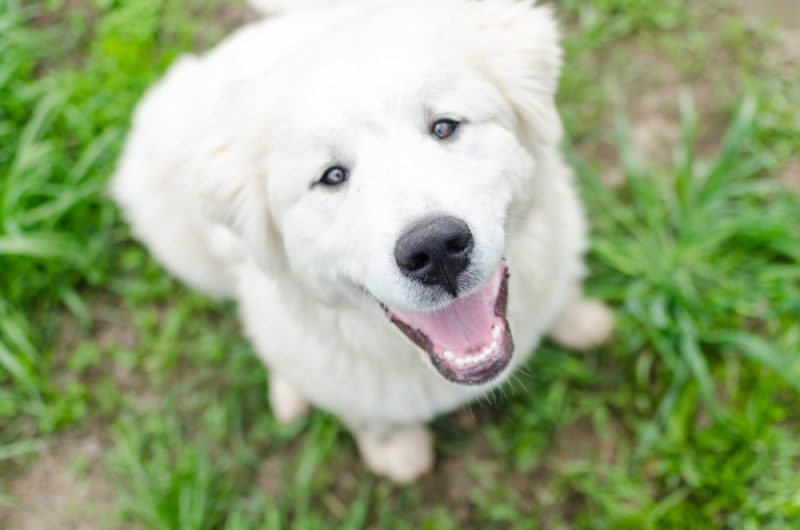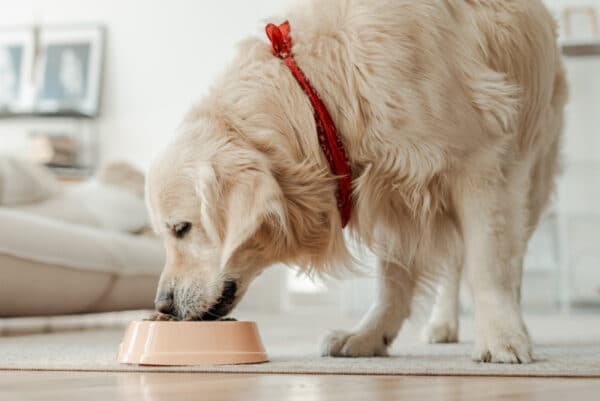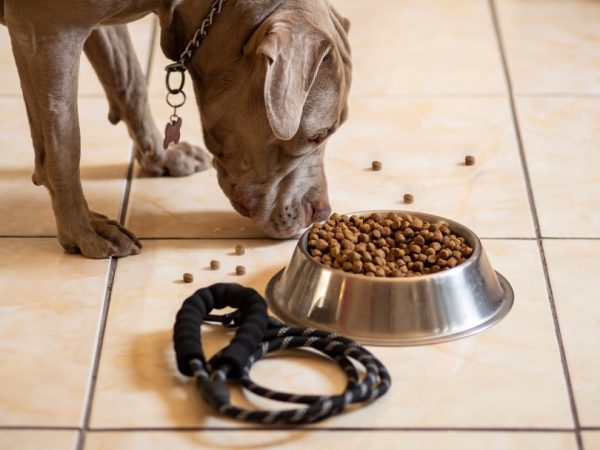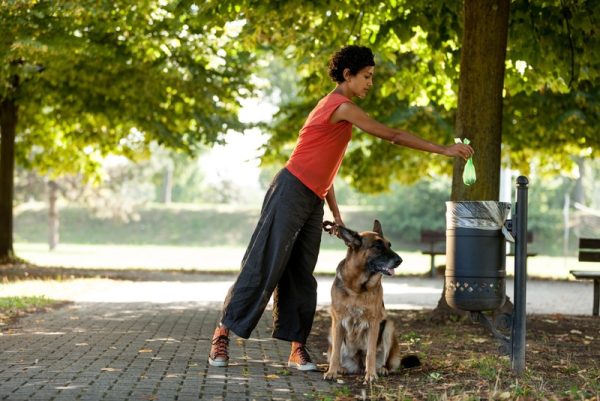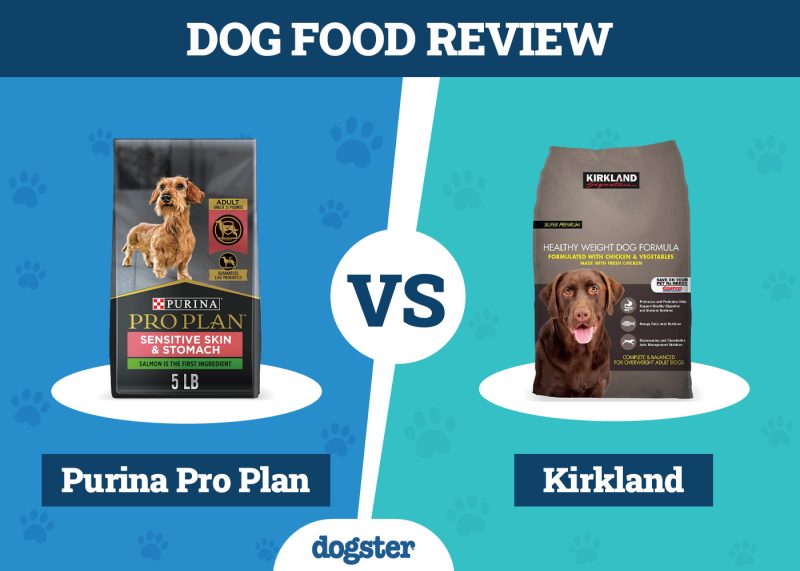In this article
View 3 More +The first bit of any dog you’re likely to encounter is their nose since all dogs will always introduce themselves and investigate nose first! The nose is a vital sensory organ for dogs, providing incredible amounts of information about their surroundings, especially (but not only) the smells! We often take noses for granted, but dogs’ noses grant them serious superpowers, and there’s a lot going on in there.
From our perspective (commonly, when that nose gets shoved in your face!), most dogs have cold and wet noses, but why is this the case? Most dogs have wet noses because of sweat, mucus, and licking. Keep reading as we explain further.

What Is a Normal Nose for a Dog?
Most dog noses are wet and cold most of the time. However, just like dogs in general, they do vary a lot from individual to individual and from time to time.
An old saying advised us that a wet nose is healthy, and a dry nose means the dog is poorly. This is not true, and all you need to know is what is normal for your dog. Some dogs naturally have wet noses, while some naturally have drier noses. Many dogs, especially as they get older, get dry and sometimes slightly roughened or crusty noses after a lifetime of hard sniffing. Usually, this is nothing to worry about, although if you are worried about any redness or soreness, then it is worth contacting your veterinarian.
The specific feel of a nose will vary depending on lots of factors, like exercise, time of day, temperature, hydration, and humidity. Dogs also lick their noses a lot, and this can change things too! All these variables are totally normal. Noses might dry out after sleep or when your dog is relaxed, for example. Alternatively, the nose may be wetter after hard exercise.
Normal wet noses should be covered in a light covering of thin, clear mucus. Again, it is worth observing what is normal for your dog.
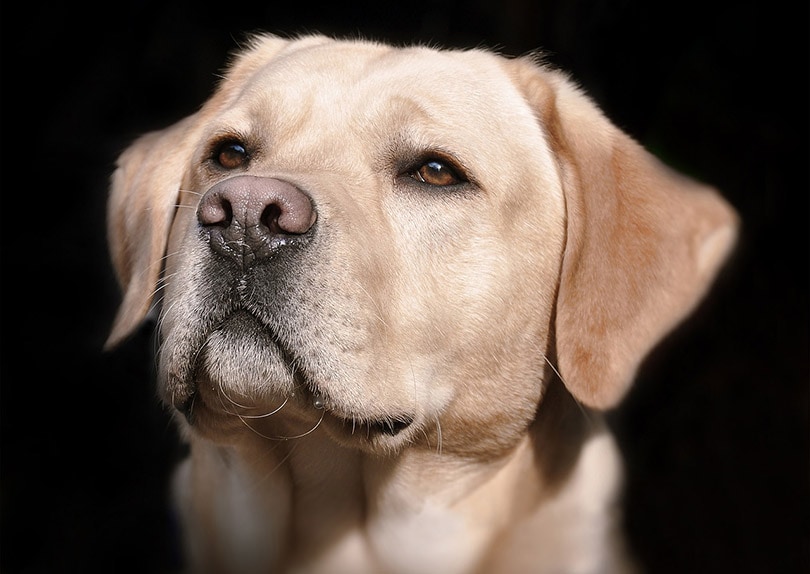
Is There a Problem With Your Dog’s Nose?
Many possible problems can affect the nose and may need a proper investigation by your veterinarian, although these are mostly quite unusual.
Consistently dry noses may be seen as part of a wider illness (dehydration and fever, for example), but your dog will typically be showing other signs of more than just a dry nose. These might include lethargy or lack of appetite.
Noses can be involved in wider skin problems, such as allergic reactions (allergies), skin infections, and auto-immune diseases. In these situations, the nose or skin around it might be red, sore, crusty, angry looking, or abnormally discharging with pus or green tinges.
What if My Dog’s Nose Has Lots of Discharge?
Normal, wet noses should be covered in clear mucus. Again, it is worth observing what is normal for your dog, but any changes in this mucus or particularly any discharges from the nose might be worth contacting your veterinarian about if you are worried. Lots of discharge (snot, boogers, or sometimes blood) from the nostrils is not normal and should be checked by your veterinarian. You may also notice this crusting as it dries around the nose. Small amounts of clear discharge are normal, but any other color of mucus is not normal.
To reiterate, if you are concerned about your dog, especially if they are showing any of the signs of ill health listed above, it is important to contact your local veterinarian for advice sooner rather than later.
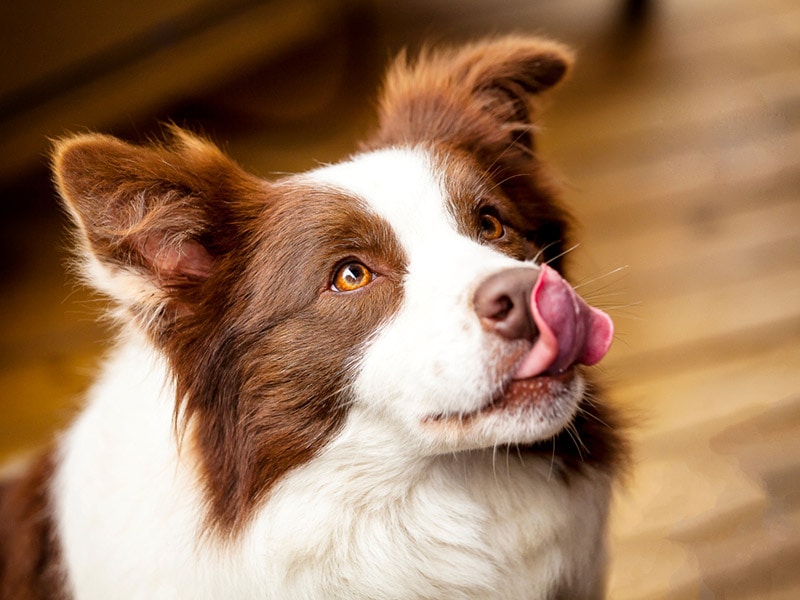
What Makes a Dog’s Nose Wet?
The wet feel is usually produced by a combination of mucus and water from the skin (sweat), as well as saliva from the mouth when the dog licks their nose.

The 4 Vet-Explained Reasons Why Your Dog’s Nose Is Wet
There are a number of possible reasons why most dogs’ noses are wet (again, some dogs have mostly dry noses, and this is normal for them).
1. Sweating
Dogs, for the most part, cannot sweat, but there are a few areas of specialized skin that can sweat. These bits of skin can be found on the pads of the feet and the nose. Just like us, dogs will sweat in these very specific regions when they are hot and need to cool down, or when they are nervous and on edge (via the fight-or-flight reflexes).
Sweating cools the body by secreting water onto the surface of the skin, which then evaporates into the air and takes heat with it. If your dog is hot or exercising, sweat may make the nose feel wetter.
2. Smell and Taste
Having a wet mucus on the surface of the nose also allows dogs to trap the chemicals involved in smells and tastes more effectively. This helps to increase the sensitivity of the nose. Both the nose and the mouth push these signaling chemicals toward the highly tuned detectors found at the back of the nose, in the tongue, and also in a special organ called the vomeronasal organ, which sits just between the nose and mouth cavities. This organ is especially important for pheromones and detecting very interesting scents, like other dogs in heat, for example.
Through the use of all these senses, dogs can literally smell and taste their surroundings and build up a very complete picture. This is completely alien to humans, as we are very reliant on our vision rather than our smell. Depending on the breed, some dogs can be hundreds to thousands of times more accurate with their nose than humans can.
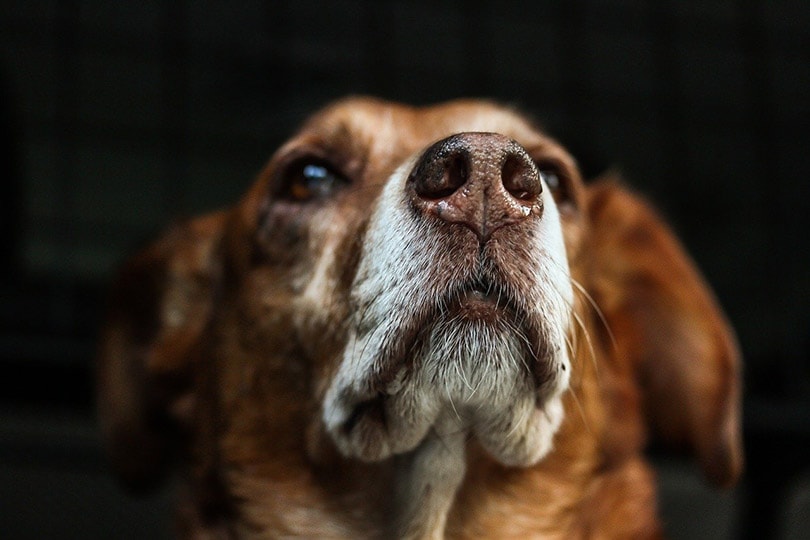
3. Controlling the Air That Enters the Lungs
Noses in both dogs and people play an important role in managing the air moving in and out of the respiratory system (the airways and the lungs). Noses filter debris in the air before it can enter the lungs. The wet nose helps to humidify air going into the lungs (which stops the lungs from drying out). The nose also acts as a bit of a heat exchanger, warming cold air on the way in and saving a little warmth on the way out.
4. Thermal Imaging Camera
Recent research also suggests that dogs’ noses may even be able to detect heat from a distance. Humans can feel sources of heat through our skin, especially as we get closer to them, but dogs’ noses may be almost able to “see” heat signatures, a bit like an infrared camera.
Scientists in Sweden trained dogs to be able to pick out an item that was just a little warmer than the environment from a distance of 5 feet away, even when they couldn’t see what it was. If this is a real finding, then dogs share this amazing ability with snakes and bats! In nature, it might be used to detect heat from prey animals hiding nearby. The wet mucus of the nose likely helps to protect all the sensitive nerves that allow this detection to happen.
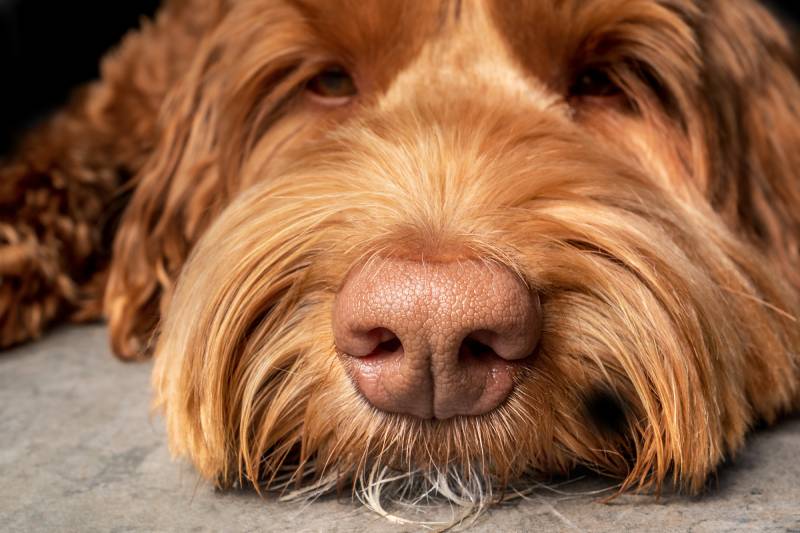

Conclusion
Most dogs have a wet nose because of sweat, mucus, and licking. The wet nose plays a key role in temperature control, protecting the lungs, and providing dogs with their incredible array of senses. Wet noses are normal, but they do vary significantly depending on the individual dog and several other factors. Some dogs naturally have a dry nose most of the time, especially as they get older.
The nose can be a sign of overall health, but this is not a good rule of thumb. It is better to learn what is normal for your individual dog. If your dog is showing signs of ill health around the nose (redness, discharge, itchiness, crustiness) or in general (dehydration, fever, lethargy) then you should seek the advice of your local veterinarian sooner rather than later.
See also:
- Why Do Dogs Sneeze When Excited?
- What Does It Mean When a Dog’s Nose Is Wet and Cold? Vet-Reviewed Facts
Featured Image Credit: Suzzamar, Pixabay
